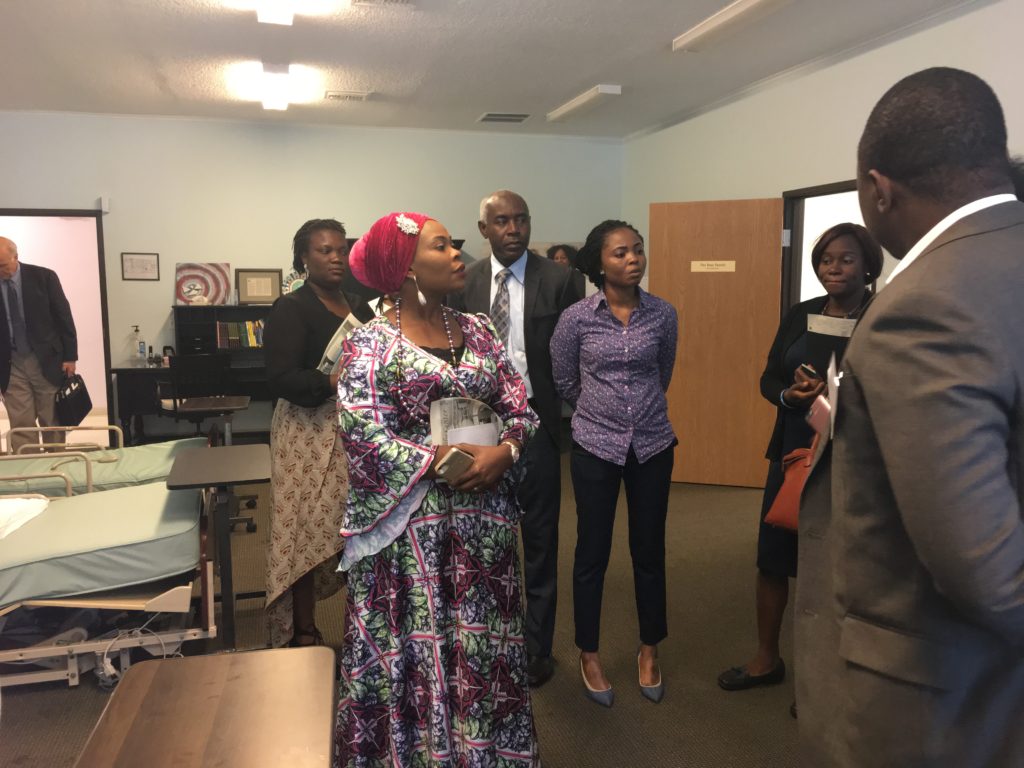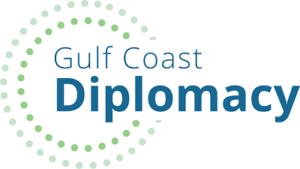What kind of meetings and activities take place in northwest Florida for a group of International Visitor Leadership Program participants from Nigeria who are focusing on Substance Abuse Prevention and Rehabilitation? Between professional meetings, hospitality efforts, and volunteerism, the recent itinerary for such a group was packed with experiential goodness and opportunities galore for mutual dialogue.
First up on the calendar was dinner in the homes of Gulf Coast Citizen Diplomacy Council members Basil & Liz Yelverton, Mike & Karen Jurkowich, and Terry Preston. The Nigerian guests appreciated their hospitality, and their gratitude continued the next day when Council Executive Don Kraher welcomed them to the region while sharing an overview of the city’s history in the City of Pensacola Council Chambers. Later that evening, the group experienced another kind of citizen diplomacy at a neighborhood Halloween celebration hosted by Eben & Magali Posey.
Despite the Halloween costumes worn by the Gulf Coast Citizen Diplomacy Council staff members, the focus of the group was naturally on their project topic and this was explored in depth from day one. Pathways for Change (PFC) Executive Director Connie Bookman met with the group for a discussion and site visit where the Nigerians observed her faith-based alternative substance abuse treatment center which offers a sentencing option for criminal offenders that judges, prosecutors, public defenders, and attorneys may use as an alternative to traditional sentencing. Discussion centered on the program helps inmates realize and overcome destructive behaviors through discipline and personal accountability.
Escambia County Chief Deputy Chip Simmons and officers from the Narcotics Unit of the Escambia County Sheriff’s Office next discussed law enforcement task forces and various operations aiming to curtail drug related violence, production, and distribution. Next, Prevention Education and Awareness Coordinator Denise Manassa of the Community Drug and Alcohol Council discussed substance abuse prevention, education, family treatment programs, and non-governmental organization coordination with local governments. This was followed by a meeting at Wellness Services at the University of West Florida with Director Mica Harrell and her team which focused on substance abuse among university students and prevention and treatment approaches from a counseling perspective.
Before leaving town, the group participated in a service opportunity at Feeding the Gulf Coast with Anita Totten, the program specialist of this local food bank which provides nutritious food to meet the challenge of feeding people who are hungry as a result of personal crisis or disaster. The organization also works to educate the public regarding domestic hunger, proper nutrition, and related issues.
An exchange can be called a success when itineraries expand beyond the structure of printed words and schedules to blossom into memorable experiences and worthwhile connections. Such was the case with the IVLP for Nigeria on Substance Abuse Prevention and Rehabilitation. The Gulf Coast Citizen Diplomacy Council thanks everyone who joined in the effort to provide professional meetings, hospitality, and hands-on experiences for these IVLP visitors from Nigeria.

